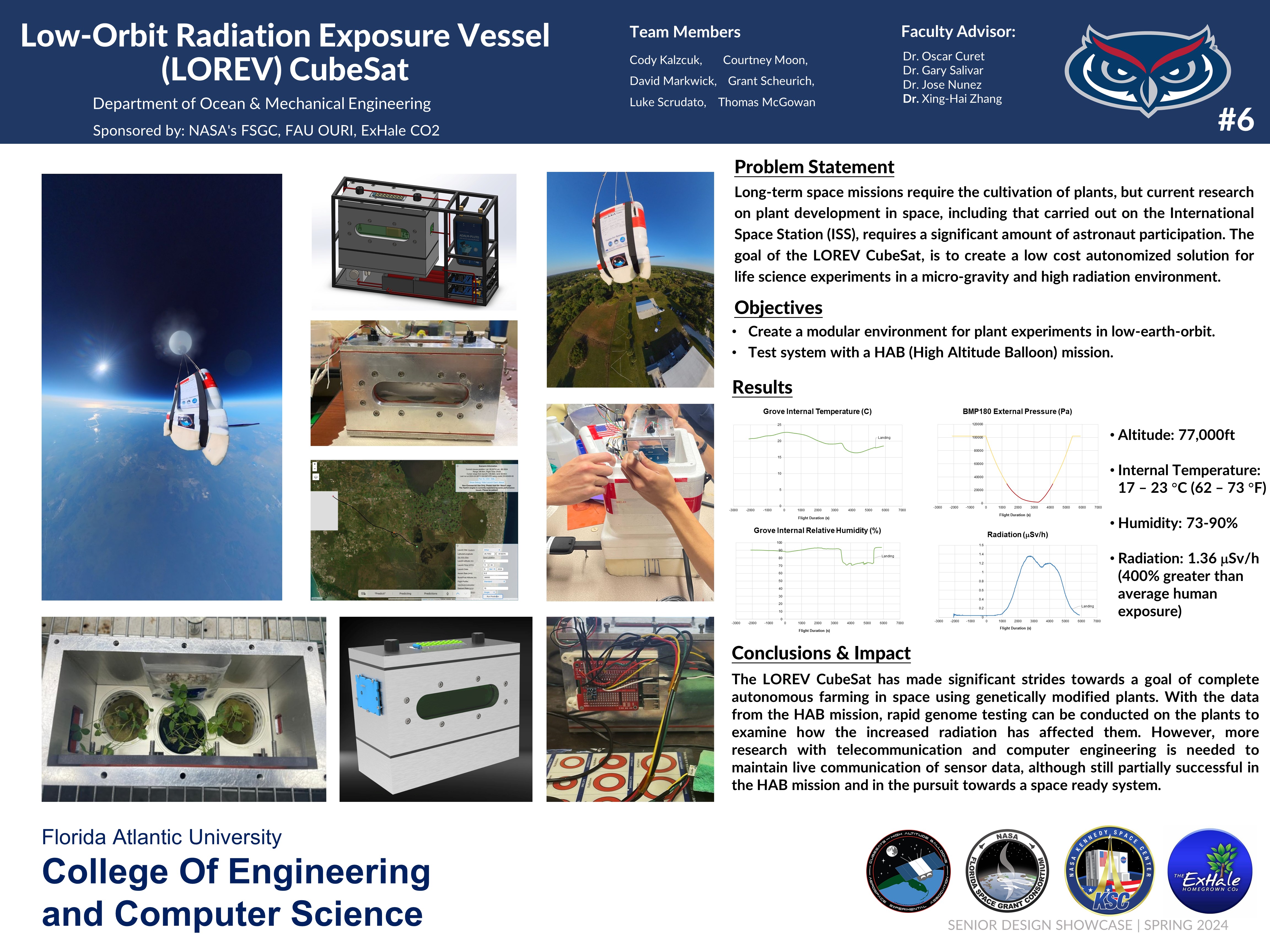Low Orbit Radiation Exposure Vessel LOREV CubeSat

Overview
Space exploration is crucial to the understanding of our universe. As the expansion of space missions continues to grow, solutions for sustaining life in space become a priority. Different methods of growing vegetation in space are constantly being tested to improve sustaining life in space. The LOREV CubeSat was a collaborative effort between Florida Atlantic University's Mechanical Engineering, Computer Science, and Biology department. The CubeSat was designed and fabricated from the ground up to allow for plant experimentation to occur in low-orbit space missions. The LOREV CubeSat contains an Environment Controlled System that is capable of holding up to three plants to see the effects of space radiation on the growth of plant
life. The Environment Controlled System (ECS) is fit with pressure, temperature, altitude, humidity, Geiger counter, and CO2 sensors that will monitor and regulate the environment to maintain optimal conditions for the plants during missions. The CubeSat is engineered to be modular for other subsystems suited for different mission objectives.
Community Benefit
Private companies such as SpaceX and Blue Origin are leading the charge to make life multiplanetary. To achieve this goal, finding new ways to sustain life in space becomes imperative. Our group aims to improve the CubeSat design to allow for more plant experimentation in low-orbit allowing for advancements in space farming by collecting data on GMO seeds from FAU Biology Department and Mycelium mushrooms developed by Exhale CO2.
Team Members
Sponsored By:
NASA
CSLI
Exhale CO2
OURI